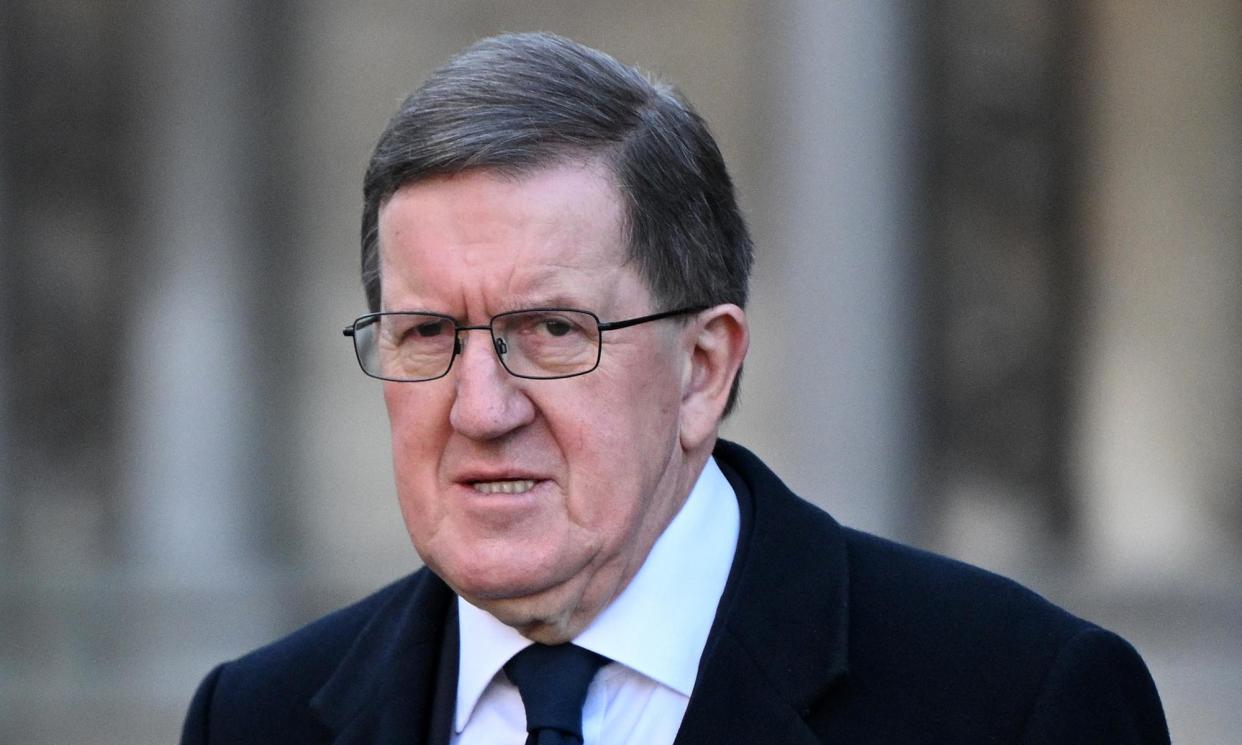UK and its allies face ‘deadly quartet’ of nations, says defence expert

Britain and its allies are facing a “deadly quartet” of China, Russia, Iran and North Korea who are acting together against the west, according to the newly appointed head of Labour’s defence review.
George Robertson, a former Nato secretary general, said the UK had to be prepared to take on all four if necessary, reflecting western concerns that the grouping are increasingly sharing arms, components and military intelligence.
Flanked by the new defence secretary, John Healey, Lord Robertson told a briefing that: “We’re confronted by a deadly quartet of nations increasingly working together,” and that Britain and its Nato allies have “got to be able to confront that particular quartet”.
The peer was referring to the four nations considered hostile to the west and who are now believed to constitute the leading threat to the UK’s security as Islamist terrorism has subsided.
Related: UK will be ‘leading European nation’ in Nato, defence secretary pledges
Robertson, who was also a defence secretary under Tony Blair, was speaking as his appointment to lead a three-person defence review was announced by Healey. The strategic exercise will conclude in the first half of next year, and help ministers set defence and foreign policy priorities for the rest of the parliament.
The review chief’s China phrasing was a marked shift in tone from the previous government’s approach, which preferred to describe Beijing as a “systemic challenge” rather than a threat, but reflects a toughening seen at last week’s Nato summit.
In Washington DC, the 32-country alliance rebuked China for acting as a “decisive enabler” for Russia’s invasion of Ukraine, by supplying Moscow components for weapons and chemicals for explosives – the strongest criticism the north Atlantic alliance has ever made of Beijing.
Robertson said that the “Nato summit last week in Washington made it perfectly clear that the challenge of China was something that had to be taken very, very seriously”, and that “what happens in the Asia-Pacific can happen in the Euro-Atlantic very quickly afterwards”.
Iran and North Korea have also supplied drones and artillery shells respectively to Russia to support Vladimir Putin’s invasion of Ukraine – and tactics used by Moscow were in turn applied by Tehran when it launched a major missile and drone raid on Israel in April in response to the bombing of its embassy in Damascus.
Last week, the US president, Joe Biden, also highlighted the fact the four countries were increasingly acting together. “It’s a concern that you have China, North Korea, Russia, Iran, countries that are not necessarily coordinated in the past looking to figure out how they can have a better impact,” though he said he would not spell out in public what he believed that impact was.
The US leader said he wanted China’s president, Xi Jinping, to understand “there’s a price to pay” for continuing to assist Russia in the war in Ukraine.
Related: Mr Starmer goes to Washington: how the PM made his world stage entrance
Healey praised Robertson, who will work alongside Fiona Hill, a British-born Russian affairs expert who has advised the US presidents George W Bush, Barack Obama and Donald Trump, and Gen Sir Richard Barrons, a former deputy chief of the UK defence staff, for taking on the review.
The three represented, Healey said, the “very best combination of external experts we could put together”, and they will work together within the Ministry of Defence, consulting and taking submissions from the military, defence industry, academics and other experts, before producing the conclusions.
Healey said he hoped the exercise would amount to “Britain’s defence review, not just the new Labour government’s defence review”. He said that it would take place “amid the war in Europe with Putin’s illegal invasion of Ukraine” and “conflict in the Middle East, growing threats and aggression and instability across the globe”. Its aim would be to “consider the threats we face, the capabilities we need, the state of our armed forces and also the resources available”.
As well as Healey, the team will report to Keir Starmer, the prime minister, and Rachel Reeves, the chancellor, and its work will help determine when Labour would, as it has promised, lift defence spending to 2.5% of GDP from its existing level of 2.32% – an increase of about £5bn in real terms.
Healey was cautious on when Labour may set out a timetable to reach the threshold, other than to say that it would be announced as part of a future “fiscal event”. A first budget is expected in the autumn, though the defence secretary would not say if a budgetary decision could be anticipated at that point.
The new minister also said he had “not come into the job to cut armed forces numbers” and complained that the size of the British army had fallen below the previous government’s target of 73,000. He also insisted that if Trump is elected as US president it would not amount to a threat to Nato.
Healey argued the Nato alliance was durable, having lasted 75 years since its creation in the aftermath of the second world war – and that the UK and other members would be pragmatic if the Republican returned to the White House, saying: “We will work with whatever president is elected.”


